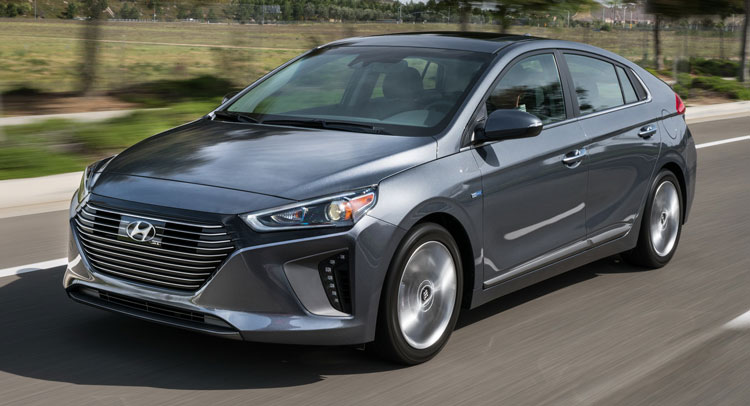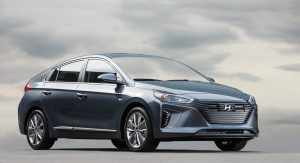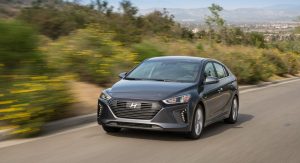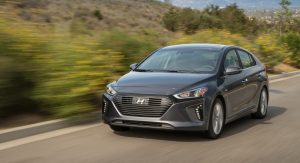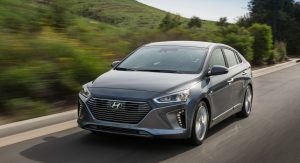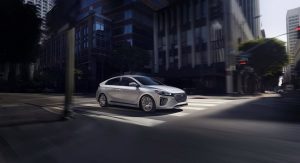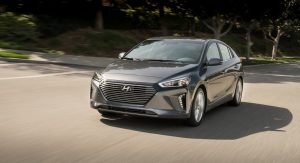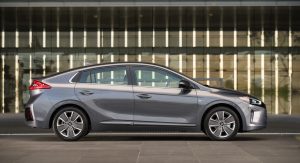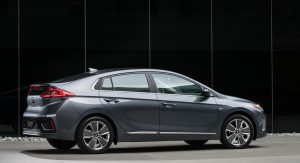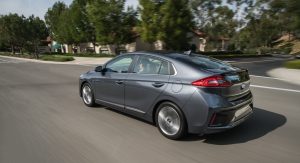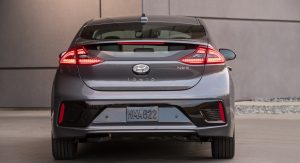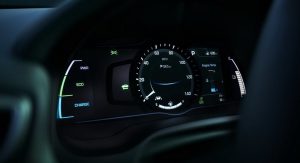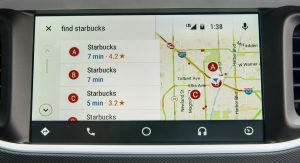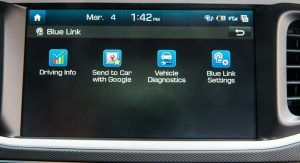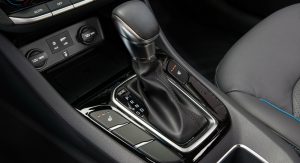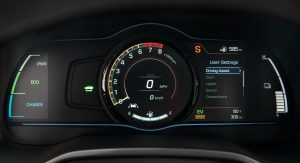The three distinct versions of Hyundai’s new “green” model are making their North American premiere at the 2016 New York Auto Show, following their global presentation at Geneva earlier this month.
The Ioniq Hybrid is powered by a 1.6-kiter Kappa Atkinson-cycle four-pot mill with 104 HP (105 PS) and 109 lb-ft (148 Nm) of torque that’s paired to an electric motor that delivers 43 HP (105 PS) and 125 lb-ft (169 Nm) and a lithium-ion polymer battery, positioned under the passenger seats, for a total system output of 139 HP (141 PS).
On the outside, the hybrid sports bi-xenon HID headlights, C-shaped LED DRLs, a hexagonal grille, 15- or 17-inch specially-designed alloy wheels and it comes with a choice of six exterior colors and two unique interior environments, while claiming a total interior volume of 122.7 cubic feet, more than the Toyota Prius.
The Ioniq Plug-in Hybrid has the same internal combustion engine but it packs an 8.9 kWh lithium-ion polymer battery and a 60 HP (61 PS) electric motor, for an estimated electric driving range of more than 25 miles. Both the Hybrid and PHEV use the same 6-speed dual clutch transmission. Outside, it adds low-beam LED headlamps, a charging portal on the left front fender and different 16-inch alloy wheels.
Perhaps the most interesting is the pure EV Ioniq. Labeled the Electric, it has a maximum output of 120 HP (122 PS) and 215 lb-ft (292 Nm) of torque, sent to the wheels through a single-speed reduction gear transmission. Its electric motor takes its juice from a 28 kWh lithium-ion polymer battery, which can be recharged up to 80% in 20 minutes with a SAE Combo Level 3 DC, 10 kW fast-charger. Maximum estimated driving range stands at 110 miles (177 km). The Ioniq Electric differentiates from the rest of the lineup with its sleeker looking grille, with a clean surface.
All three versions have ecologically-sensitive materials inside that include plastic combined with powdered wood and volcanic stone for the door covers, while the headliner and carpet have raw materials extracted from sugar cane.
The Ioniq comes with “state-of-the-art infotainment“, 7-inch TFT information cluster, Apple CarPlay and Android Auto connectivity, wireless inductive-charging pad for smartphones, “smart and efficient air conditioning” that reduces ventilation losses and increased the overall efficiency of the system and Blue Link connected car system with its numerous functions starting with remote start and climate control and ending with the car finder and stolen vehicle recovery. This can be accessed through Hyundai’s portal, smartphone or smartwatch app or from the buttons located on the rear view mirror.
Active safety features present on the Ioniq include Blind Spot Detection, Lane Change Assist, Rear Cross-Traffic Alert, Lane Departure Warning, Automatic Emergency Braking with Pedestrian Protection, Smart Cruise Control and Tire Pressure Monitoring.



